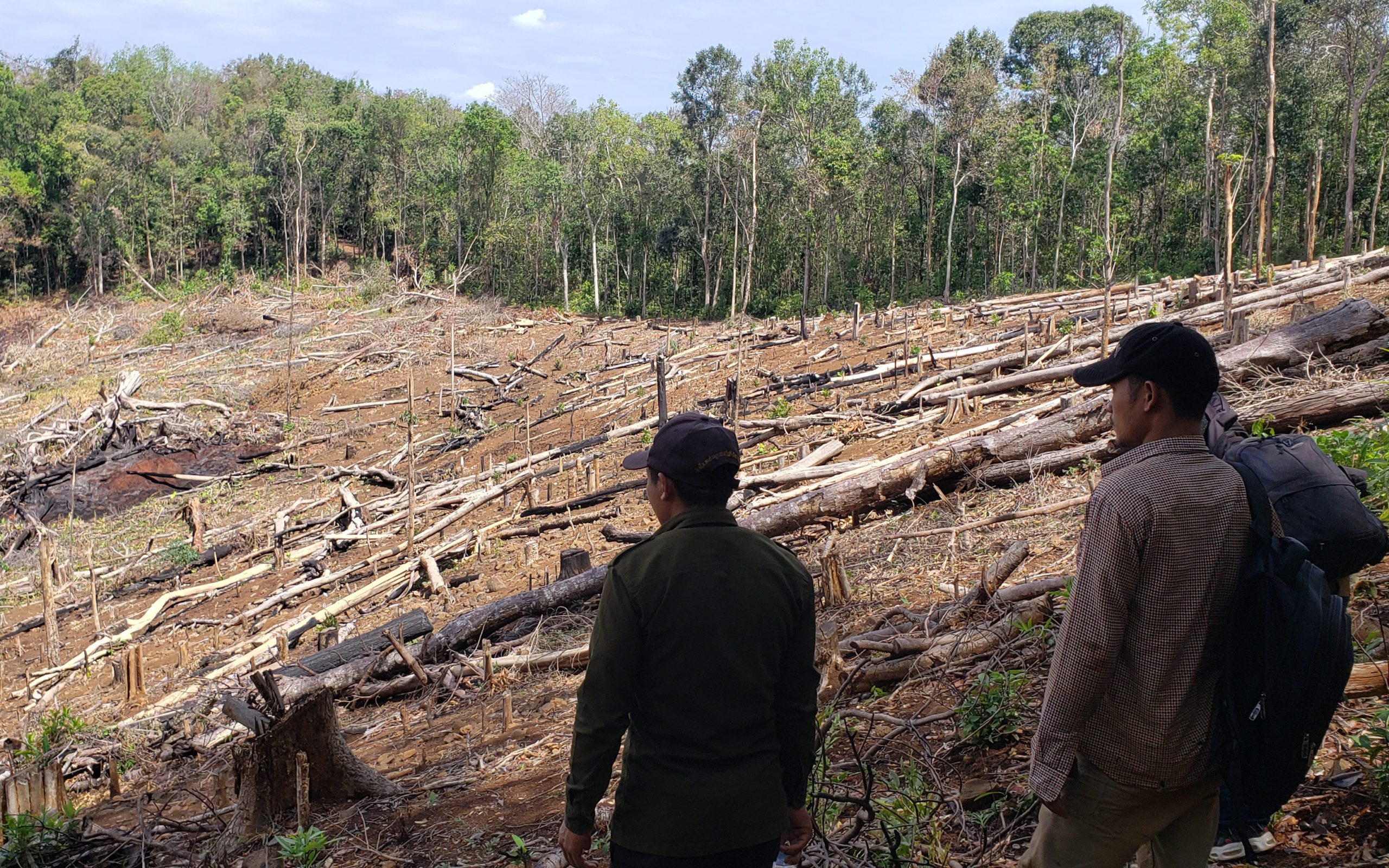Mondulkiri’s provincial spokesman says widespread loss of protected land — amid the creation of a new anti-logging task force on Tuesday — “has nothing to do with powerful people or high-ranking people.”
Mondulkiri has been rife with allegations of land grabs and clearings amid its hundreds of thousands of hectares of wildlife sanctuaries and other protected land. Indigenous communities have reported significant encroachment of their ancestral land, while a 2020 Interior Ministry report pointed the finger at 10 government officials as allegedly involved in stealing state land. As of October, however, none of the implicated officials appeared to have faced disciplinary actions.
The Ministry of Agriculture, Forestry and Fisheries released a document on Tuesday creating a 62-person working group with three teams who are tasked with investigating, preventing and arresting individuals involved in illegal logging in Mondulkiri, while also assisting in legal procedures and confiscation of any equipment seized. Agriculture Minister Veng Sakhon could not be reached on Tuesday.
Following the ministry notification, the provincial government also issued a statement reminding “initiators, accomplices, perpetrators and instigators” of land grabs and logging of the penal code and legal provisions to punish this activity.
The statement points to provisions in the Criminal Code, Forestry Law, Protected Areas Law and Land Law.
Mondulkiri Provincial Administration spokesman Neang Vannak denied that the new measures were an admission of accelerating land loss. The government has repeatedly insisted that large-scale illegal logging — historically linked to powerful tycoons — has already been stamped out in the country.
Vannak said the new working group was not because there was a recent increase in land grabs and forest crimes, but only because old perpetrators of land grabs were now starting to clear the land.
“They encroached a long time ago but they had not yet acted. Now they have started to act gradually. So when we see [their] actions, we take action by informing them to leave the state land.”
He said the loss of protected land was due to “brothers and sisters,” and there was no evidence to suggest that wealthy or powerful people were involved.
“The accusation does not have clear grounds, because for the land in Mondulkiri province, it has involved brothers and sisters and it has nothing to do with powerful people and high-ranking people — we have not seen anything notable,” Vannak said. “What I know, have seen when participating in the work, is that it has involved the brothers and sisters.”
He acknowledged that many cases involved indigenous communities who routinely complained of losing ancestral land, traditional graveyards and communal lands.
Kroeung Tola, a coordinator for the Mondulkiri Indigenous People Network, said there were brokers inciting villagers to sell the land and claimed senior and high-ranking officials were involved.
He alleged that Land Minister Chea Sophara was among those with land. Last year, guards stationed at a large plot in the province told reporters that the land belonged to Sophara’s family. Sophara hung up on a reporter on Wednesday.
A Justice Ministry official has previously been fingered in grabbing 1,000 hectares of state land while threatening locals, while Mondulkiri residents have previously spoken of loss of culture and the involvement of local officials in the land encroachment. Phnom Penh police chief Sar Thet has also been named in residents’ complaint of land encroachment. Last year, the Environment Ministry was mulling handing over 272 hectares of protected biodiversity corridor to the CEO of borey developer Peng Huoth.
“They are powerful and high-ranking people behind this. I do not believe this action because they cannot take action against their family because they have strong connections — if they can do it, they would do it since the previous governor,” Tola said.













